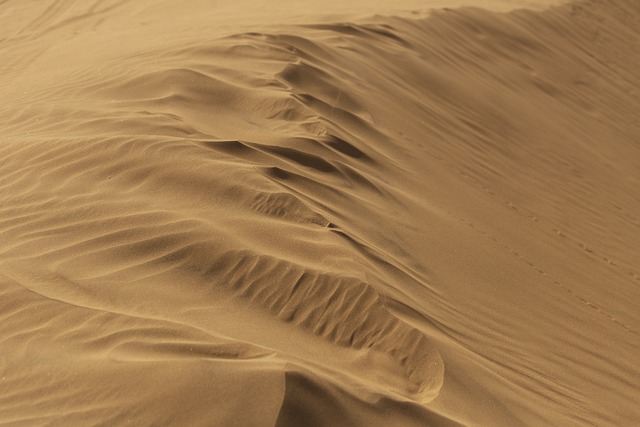
Iran's Supreme Leader Reportedly Seriously Ill, Succession Battle Looms Amidst Israeli Strikes
Listen up, everyone! We've got some serious news brewing from the Middle East. It seems Iran's Supreme Leader, Ayatollah Ali Khamenei, is reportedly facing some grave health issues. This news, my friends, is sending ripples across the region and igniting a silent battle for succession. This is a situation that requires close attention, as the future of Iran hangs in the balance.
Now, according to reports from The INTERNET, the 85-year-old Ayatollah's health has taken a turn for the worse, leading to speculation about who will assume the mantle of supreme leadership. The whispers point towards his second eldest son, Mojtaba Khamenei, a man of 55 years, as the potential successor. However, the situation is far from clear cut, with even the Islamic Revolutionary Guards Corps, the country's powerful military force, throwing their hats into the ring, eager to have a say in the selection process.
This is a scenario that has been brewing for some time. You see, since 1989, Khamenei has held the reins of power, assuming the mantle after the passing of Ruhollah Khomeini. But the question of succession has been hanging over the nation like a storm cloud, especially since the death of Iranian President Ebrahim Raisi in a helicopter crash last year. The Times, a reputable source, noted that the prospect of succession has caused internal disquiet ever since Raisi's tragic demise.
This situation is further complicated by the recent back-and-forth between Iran and Israel, a long-standing rivalry that has reached a fever pitch. Just last weekend, Israel launched retaliatory strikes against Iranian military sites in response to a barrage of ballistic missiles launched by Iran. The strikes, my friends, have intensified the situation, leaving Iran in a precarious position.
A Tenuous Situation
While Iranian officials have publicly stated their desire to de-escalate the situation, the reality is far more complex. The country is grappling with a host of challenges - faltering allies, an economy teetering on the brink, and now, an ailing supreme leader, all adding to the tension.
The recent Israeli strikes have further inflamed the situation, and it remains to be seen how Iran will respond. While Iranian military officials have hinted at the possibility of retaliation, their statement on Saturday night suggests a shift in strategy. The statement, carefully crafted, called for a ceasefire in the Gaza Strip and Lebanon, implying that Tehran might be seeking to avoid further escalation, at least for now. However, the statement also reminded the world that Iran reserves the right to retaliate, leaving room for future action.
The situation is far from stable, and the health of Ayatollah Khamenei only adds to the uncertainty. It seems that Iran is at a crossroads, caught between a delicate diplomatic dance and the pressures of domestic unrest. This is a time for careful observation and prudent analysis, as the future of the region may well hinge on the decisions made in Tehran.
A Look at the Power Dynamics
The succession process is complex, with several players vying for influence. Here's a breakdown of the key figures involved:
Key Player | Role | Potential Influence |
Ayatollah Ali Khamenei | Supreme Leader | Currently holds ultimate authority, but his illness could significantly impact the succession process. |
Mojtaba Khamenei | Second Eldest Son of Khamenei | Seen as a potential successor, but his influence is yet to be tested. |
Islamic Revolutionary Guards Corps (IRGC) | Powerful Military Force | May play a crucial role in shaping the succession process, given their influence on Iranian politics and security. |
President Ebrahim Raisi | Head of State | His recent death in a helicopter crash has created a vacuum in leadership, adding to the complexities of succession. |
The succession process could have significant implications for Iran's domestic and foreign policies. While the country has shown resilience in the past, facing a combination of economic challenges and political instability, the coming months will be crucial in shaping the future of the nation.
The Economic Landscape
Iran's economic woes are well-documented. The country has been under intense pressure from international sanctions for years, significantly impacting its economic growth and the livelihood of its citizens. The sanctions have crippled Iran's oil exports, a key source of revenue, and hindered its access to global markets.
The situation has been exacerbated by the recent strikes, which have damaged key infrastructure and added to the economic strain. While the impact of the strikes on the economy is yet to be fully assessed, it is likely to further dent investor confidence and slow economic growth.
The Role of Israel
Israel, a key regional player with a long-standing rivalry with Iran, has played a significant role in escalating tensions. The recent strikes, while claiming to be retaliatory, have heightened concerns about the potential for a wider conflict.
The strikes highlight the delicate balance of power in the region and the potential for miscalculation to lead to a full-blown war. This situation underscores the need for diplomacy and de-escalation, as any escalation would have significant consequences for all parties involved.
The International Community
The international community has expressed concerns over the escalating tensions between Iran and Israel. Calls for restraint and diplomacy have been issued by various world leaders, who have stressed the importance of avoiding a wider conflict.
The international community also recognizes the need to address the underlying issues that fuel tensions in the region, including the ongoing conflict in the Gaza Strip and the complex geopolitical dynamics of the Middle East.
The Future
The situation in Iran is fluid, and the coming months will be crucial in determining the future of the country. The succession process will be closely watched, as it could have significant implications for both domestic and foreign policies.
The economic challenges facing the country are likely to persist, and the potential for further escalation with Israel remains a pressing concern. It is hoped that all parties involved will prioritize diplomacy and de-escalation, working towards a more stable and peaceful future for the region.
"The Middle East is a region of complex and intertwined challenges. Finding solutions will require patience, understanding, and a willingness to engage in constructive dialogue." - Former UN Secretary-General Ban Ki-moon
Space for advertisement
WORLD NEWS
Oct 27, 2024
Iran's Supreme Leader Reportedly Seriously Ill, Succession Battle Looms Amidst Israeli Strikes
Iran's Supreme Leader, Ayatollah Ali Khamenei, is reportedly seriously ill, prompting succession concerns amidst Israeli strikes and economic challenges.

